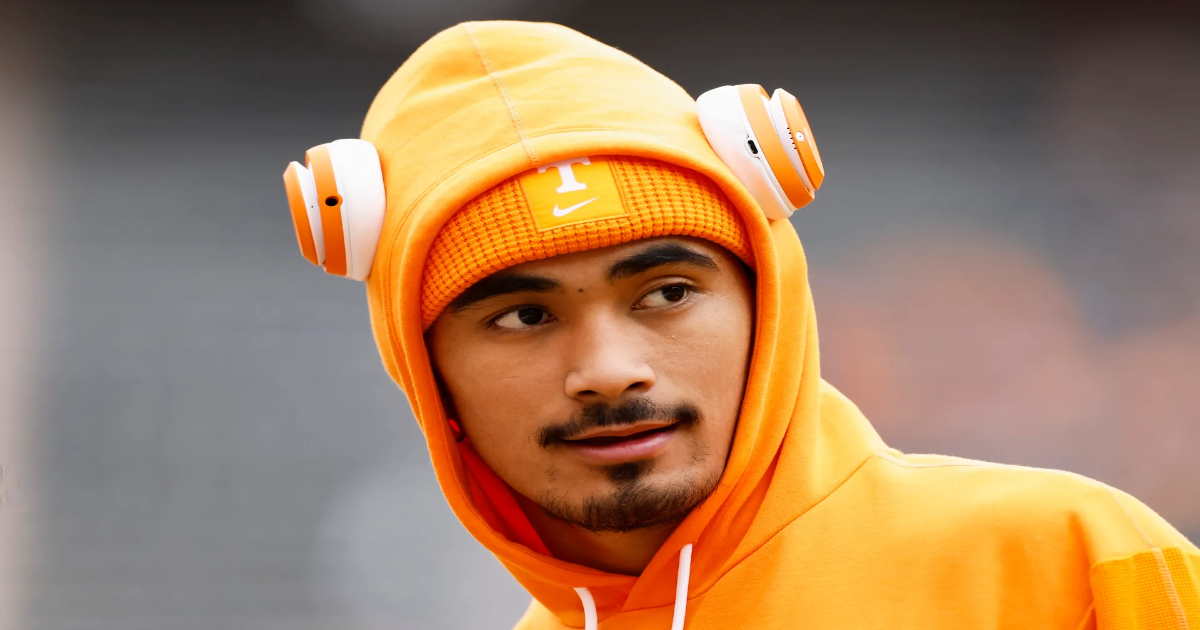Over the weekend, the Tennessee Volunteers and quarterback Nico Iamaleava went their separate ways, following a contract dispute and brief holdout in which Iamaleava didn’t show up to the team’s practice on Friday. His camp—mainly his father and agent—had been negotiating for around $4 million for the upcoming season, a significant raise over his expected $2.2 million. Iamaleava first garnered attention in 2022 for originally receiving an $8 million NIL deal over the length of his college career, when he was still a high school recruit. After one year as Tennessee’s starting QB, he’ll be looking for a new team.
After quarterbacks Carson Beck and Darian Mensah used the transfer portal to find better NIL deals at Miami and Duke, respectively, it seems Iamaleava’s camp was seeking something similar. According to ESPN, this contract dispute had been “a growing source of frustration among administrators at Tennessee and within the locker room,” with Iamaleava increasing demands as the spring transfer portal is set to open from April 16-25. When Iamaleava missed practice on Friday and didn’t communicate with team staff, head coach Josh Heupel made the decision to move on.
“These guys have an appreciation for Nico and what he’s done since he’d been here too,” Heupel said at a press conference Saturday, after his team’s spring game. “At the end of the day, everybody in college football’s dealing with this as the portal opens up here this week. And at the end of the day, it’s my responsibility, our staff’s responsibility, to find 105 guys that are going to go give their all for Tennessee day in, day out and certainly on game day too, and we’ll do that.”
This saga has received a lot of attention and consternation, mostly for the use of a holdout, a tactic typically reserved for the NFL level. Iamaleava’s situation has become a bit messy thanks to the people nominally working for him and a piecemeal NIL system vulnerable to this kind of shadiness, but it is also totally expected when the NCAA avoids the task of creating a formal payment system for college athletes, and passes on the responsibility to boosters and corporate sponsors.
“There’s always a first,” said Marc Spiegel, founder of an NIL collective for Louisville, via The Athletic. “It started with opting out of the bowl game. I would say, until there’s a bit more formality in terms of the way contracts are written and enforcing penalties for not fulfilling them, this type of thing could continue to happen.”
Iamaleava was in high demand as a recruit and got an unprecedented deal to come to Tennessee; it’s not surprising then that he and his camp, which seems to also include his father’s influence, might have an overinflated sense of his value, even after a decent but unspectacular season for an SEC program. This weekend just resulted in the total deterioration of communication between both parties.
Every so often, the transfer portal prompts a discussion on whether one particular athlete’s decision is the point of no return for college sports, but by now there have been too many points to count. This is still the experimental era of NIL, in which college athletes have far more leverage than they used to, collectives promise money that isn’t always delivered, and the prior generation of established coaches find it a fitting time to retire and take on less stress behind a TV desk. Iamaleava’s situation is new and memorable, but it’s also unlikely to be the standard, considering the rare length and amount of the deal Tennessee originally gave him.
While the true precedence of this deal is determined, Iamaleava will seek his desired value somewhere in the transfer portal, and Tennessee needs to find a starting QB. Everyone else is free to declare whether this marks the end of college football as we know it, which is as much a part of the sport as the games themselves.
